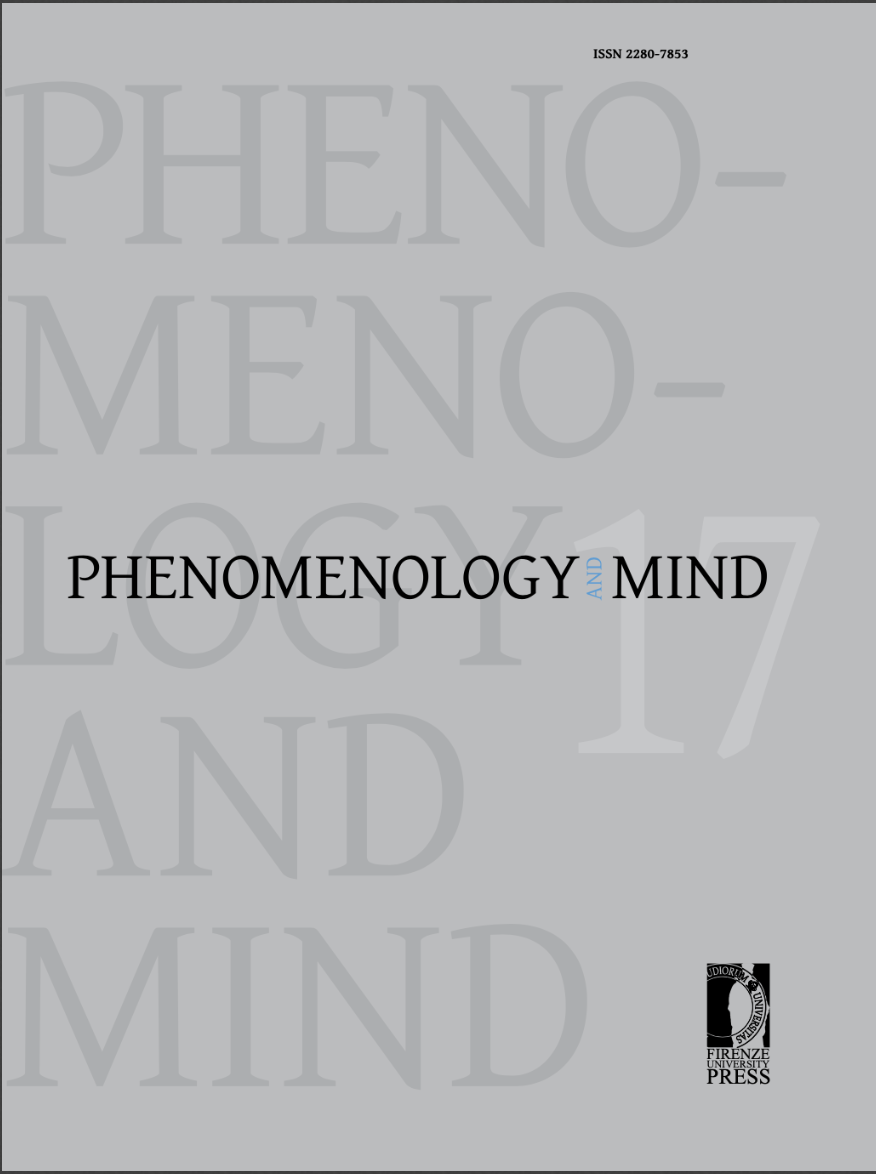Published 2016-11-26
Keywords
- situation,
- typification,
- habit,
- genetic phenomenology
How to Cite
Abstract
This paper tries to document Husserl’s reflections on the problem of “situations” in his later manuscripts of the 1930s. These reflections are centered on the phenomenon of “typificiation”, which plays an important part in Husserl’s genetic phenomenology. Thus, the paper starts by sketching out a general presentation of “typification” in its relation to expectation and habit. By defining situation as “the intentional living unity of horizontal context and subjective potentiality”, the paper then tries to follow Husserl’s exposition of three essential aspects of situational typification: a.) the habituality of interest; b.) normality and c.) periodicity.

